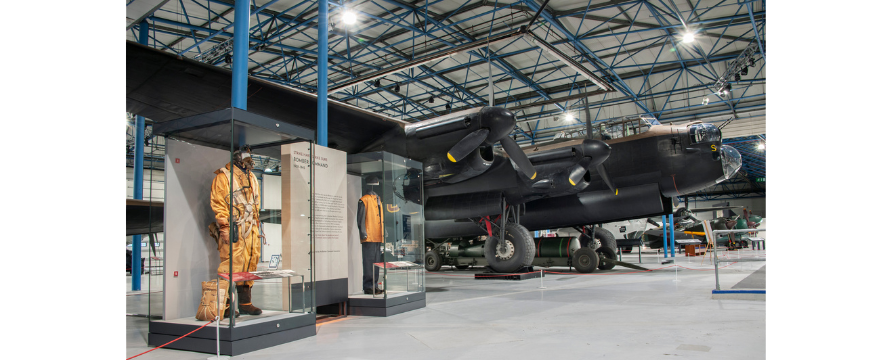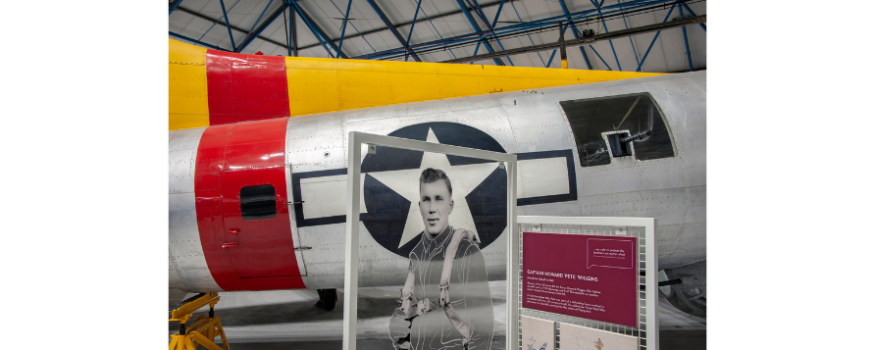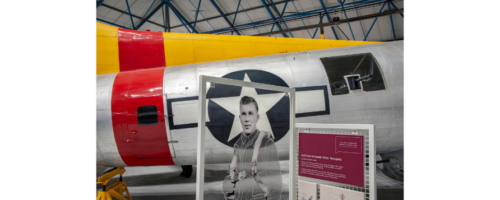Marking the 80th anniversary of the famous ‘Dam Busters’ raid, the Royal Air Force Museum has unveiled a new permanent exhibition dedicated to Bomber Command.
Around 125,000 aircrew from 60 nations served in Bomber Command during the Second World War, volunteering from Britain, the Commonwealth and Dominions, occupied and neutral countries as well as German nationals fleeing persecution. Their average age was just 23.
The exhibition shares the Bomber Command story through the lens of the personal experiences of those who served. They were, in their eyes, just ordinary people from many different countries and backgrounds. In history, they gave extraordinary service. Men and women from across the world, on the ground and in the air, played a part.
Throughout the exhibition silhouettes depict the stories of individuals who played crucial roles, like that of Barnes Wallis the genius inventor behind the ‘bouncing bomb’ used in the famous Dams raid, and the Vickers Wellington bomber, Wing Commander Raymond Hilton who was the first operational captain of Lancaster ‘S for Sugar’ currently on display at the Museum, and Corporal Lilian Bader who was one of the first Black women to join the British armed forces.

Also on display are other Bomber Command aircraft such as the Handley Page Halifax and the tail section of the Short Stirling Mk III surrounded by new high-tech interpretation.
New showcases have enabled us to exhibit personal objects taken from storage such as the fire-damaged flying helmet, jacket and goggles belonging to Sgt John Hannah. This brave wireless op/air gunner was awarded the VC by extinguishing an on-board fire with just his bare hands – thereby saving his aircraft and crew against all odds.
On display are some of the innovative technical developments that supported Bomber Command in the delivery of their operations. Visitors can see the replica 9,250lb cylindrical Anti-Dam Mine (also known as the bouncing bomb), the 22,000lb Grand Slam Bomb and a Rose Brothers Type R gun turret.
The exhibition’s themes cover training, tech and tactics, precision raids, and experience and loss. Context is provided by a timeline detailing key events in Bomber Command’s history and aircraft development while new exhibition features including augmented reality will help aid visitor understanding.
Click here to find out more about Royal Air Force Museum.










